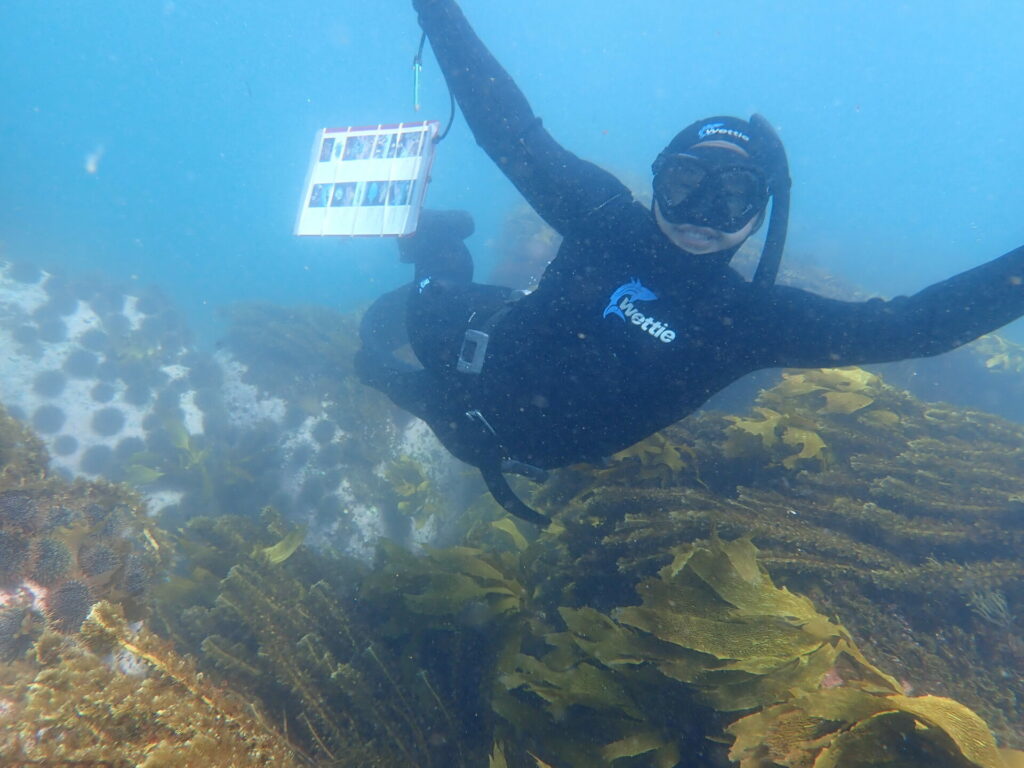- Vision Mātauranga
Research Programme
- Kura Paul-Burke
University of Waikato - View the full team
Project Lead
-
Budget
$150,000 -
Duration
July 2022 – December 2023
-
Completed project
Are the kina still fat when pōhutukawa bloom?
For generations, Ngāti Whakahemo have used the whakataukī of the flowering pōhutukawa as a tohu to tell us when the kina are ripe and ready to harvest at Motunau (Plate Island) and on its surrounding reefs. Unfortunately, kaumātua and kaitiaki have observed that the way the pōhutukawa blossoms (when, for how long, and how intensely) is no longer in sync with or a strong indicator of the fatness of kina.

This imbalance is caused by a changing climate and rising ocean temperatures and is considered to be a prelude to deeper environmental issues. In response, this proactive project brought together coastal kaitiaki, taiohi and scientists to co-develop a unique underwater mātauranga-led Kaupapa.
This practical, hands-on project combined marae-based wānanga with free-dive training, technology and tohu+climate science monitoring. By honing in on this single tohu, Ngāti Whakahemo could begin to build a picture of how climate change will alter traditional tohu or even create new tohu. This helped us identify steps to address the risks for our mahinga kai.
This project was designed to enable the intergenerational transmission of knowledge and practice, which has always assisted us to self-regulate management regimes for our mahinga kai and which enriches the cultural connectivity of our moana and mokopuna.
This project was led by Te Rūnanga ō Ngāti Whakahemo, supported by the Pukehina Marae Committee and māori scientists from MUSA Environmental, Waikato University and Plant and Food Research. The methods and findings from this project sought to support other coastal hapū and iwi to investigate their own cultural, ecological and climate contexts, to assist broader decision-making and adaptive management.
-
Kura Paul-Burke
University of Waikato -
Megan Ranapia
Waikato University -
Waka Paul
Plant and Food Research -
Joe Burke
MUSA Environmental